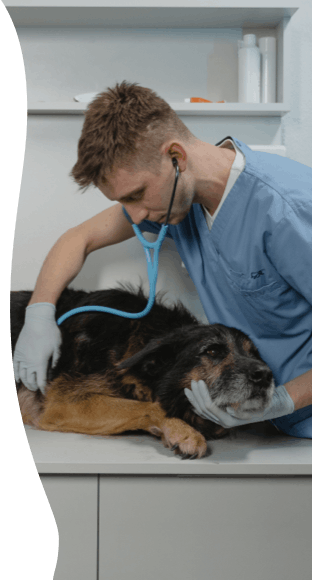Dog Ate 10000 Iu Vitamin D
What is Vitamin D Poisoning?
Symptoms of Vitamin D poisoning typically appear 12 to 24 hours after initial ingestion, although they can appear as much as 72 hours after ingestion. In a dog with vitamin D poisoning, calcium, and phosphorous levels rise, affecting the kidneys, heart, gastrointestinal tract and central nervous system. In extreme cases or if left untreated, dogs can experience acute renal failure, coma, and death.
Vitamin D is fat-soluble and regulates dog's calcium and phosphorous levels, influencing nerve and muscle control. When consumed at excessive levels, Vitamin D poisoning causes an electrolyte abnormality known as hypercalcemia.
Vet bills can sneak up on you.
Plan ahead. Get the pawfect insurance plan for your pup.
Compare plans

Vitamin D Poisoning Average Cost
From 31 quotes ranging from $500 - $7,500
Average Cost $2,500
Symptoms of Vitamin D Poisoning in Dogs
- Vomiting
- Excessive drooling
- Abdominal pain
- Muscle tremors
- Seizures
- Weakness
- Depression
- Constipation
- Loss of appetite
- Increased thirst
- Increased urination
- Blood in vomit
- Loss of weight
- Tarry feces that contains blood
Top
Causes of Vitamin D Poisoning in Dogs
The most common cause of vitamin D poisoning is the accidental ingestion of certain chemicals used to kill rodents that contain cholecalciferol, or vitamin D3. Poisoning may also be a result of chronic dietary over-supplementation of vitamin D (a risk if you are supplementing vitamin D to treat your dog's hypoparathyroidism), accidental ingestion of vitamin D tablets or chews. If you notice that your dog has consumed chemicals containing vitamin D it's important have a veterinarian visit as soon as possible. Do not wait to take a "wait-and-see" approach with symptom onset.
Top
Diagnosis of Vitamin D Poisoning in Dogs
As the symptoms of vitamin D poisoning overlap with many other conditions, it is important to disclose details about your dog's diet, any supplements you have been adding, and if your dog may have been able to access rodenticides or another source of vitamin D recently. Being able to determine that vitamin D poisoning is causing your dog's symptoms will aid in a swift recovery.
The veterinarian will conduct a complete physical examination, and conduct a complete blood count, which checks for abnormalities in red and white blood cell count. Additionally, a blood biochemistry profile will measure levels of calcium and phosphorous, elevated levels of which indicate vitamin D poisoning. The biochemistry profile may also show lower than normal levels of potassium and an accumulation of nitrogenous waste products, as well as low levels of albumin and high levels of certain liver enzymes. A urinalysis will be conducted to measure levels of proteins and glucose, which, if elevated, will help confirm the diagnosis. In some cases, an echocardiogram will measure your dog's heartbeat, as some dogs suffering from vitamin D poisoning have slowed heartbeats.
Top
Treatment of Vitamin D Poisoning in Dogs
If your dog has recently ingested the substance at the time you seek treatment, the veterinarian will induce vomiting and administer a drug that binds to the vitamin D in order to prevent further absorption. However, if the substance has already been fully metabolized, the first goal of treatment will be to stabilize your dog if necessary, as in the case of a dog suffering seizures. Your dog will be placed on an IV in order to stay hydrated and balance electrolyte levels. Hydration helps to encourage the excretion of excess calcium through urine.
The veterinarian will monitor calcium and phosphorus levels frequently until they have stabilized enough to take your dog off of the IV. After this, the veterinarian will likely want to monitor your dog's levels daily for several days to avoid renal failure. In some cases, aluminum hydroxide, or other phosphate binders will be given to lower the phosphate levels.
Other treatments include the administration of anti-seizure medication, antibiotics in the case of secondary bacterial infections that may occur as a result of vitamin D poisoning, and/or blood transfusion in the case of severe anemia.
Top
Recovery of Vitamin D Poisoning in Dogs
The prognosis for vitamin D poisoning depends upon if and when treatment is sought; however, if treatment occurs early, the prognosis is good. Your dog may require prolonged hospitalization and monitoring. Even after your dog is released to outpatient care, you may have to return to your veterinarian regularly in order to monitor progress. Your pet needs to be monitored for potential organ calcification, caused by the buildup of calcium in body tissues, which hardens and can disrupt bodily functions.
Top
*Wag! may collect a share of sales or other compensation from the links on this page. Items are sold by the retailer, not Wag!.
Source: https://wagwalking.com/condition/vitamin-d-poisoning

0 Komentar